Have you ever wondered which animals are living their best lives thanks to their smarts? It’s fascinating to think about how some creatures navigate their world with intelligence that rivals, and sometimes even surpasses, our own. You’ll find that intelligence comes in many forms, from problem-solving and communication to emotional intelligence. Here’s a list of 15 of the smartest animal species on the planet, where you might find some familiar faces and a few surprises. Let’s dive into the minds of animals that could possibly outsmart us in certain situations.
1. Chimpanzees
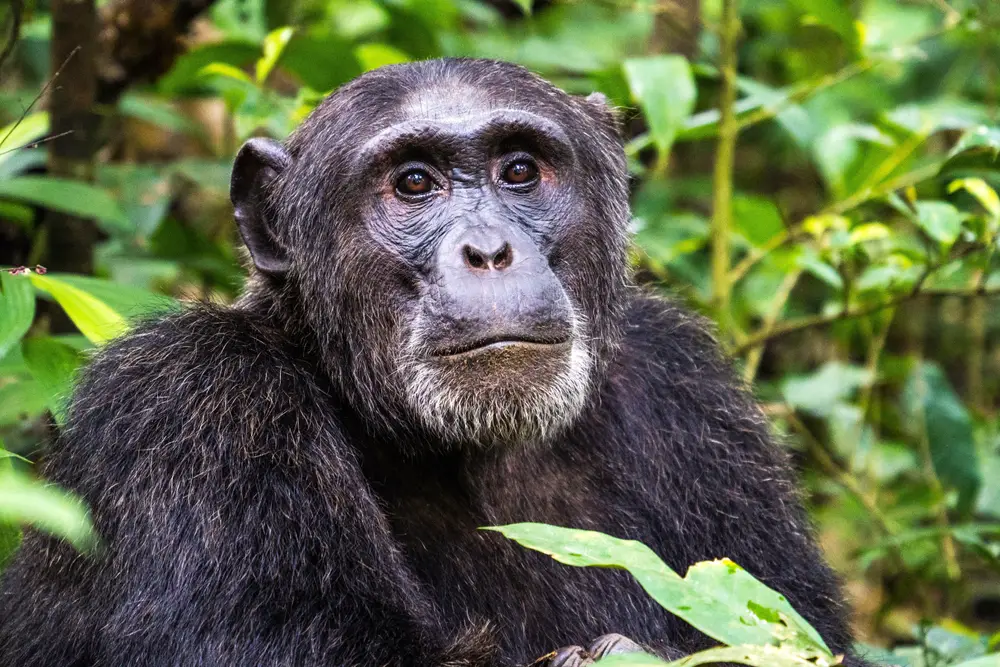
Chimpanzees are often considered the closest relatives to humans, and their intelligence reflects this connection. They are capable of learning sign language and have been observed using tools in the wild. In fact, a study conducted by Dr. Jane Goodall revealed that chimpanzees use sticks to fish for termites, showcasing their problem-solving skills. They also display emotions and complex social interactions similar to human communities. With their ability to learn and adapt, it’s no wonder they’re at the top of our list.
Their intelligence isn’t just limited to tool use; chimpanzees possess remarkable memory skills as well. They can recall the locations of hidden food items and remember the faces of individual members of their group. This memory capability is comparable to that of a human child. Socially, they are adept at forming alliances and understand the concept of reciprocity among their peers. Altogether, their cognitive abilities make chimpanzees one of the smartest animals on the planet.
2. Dolphins
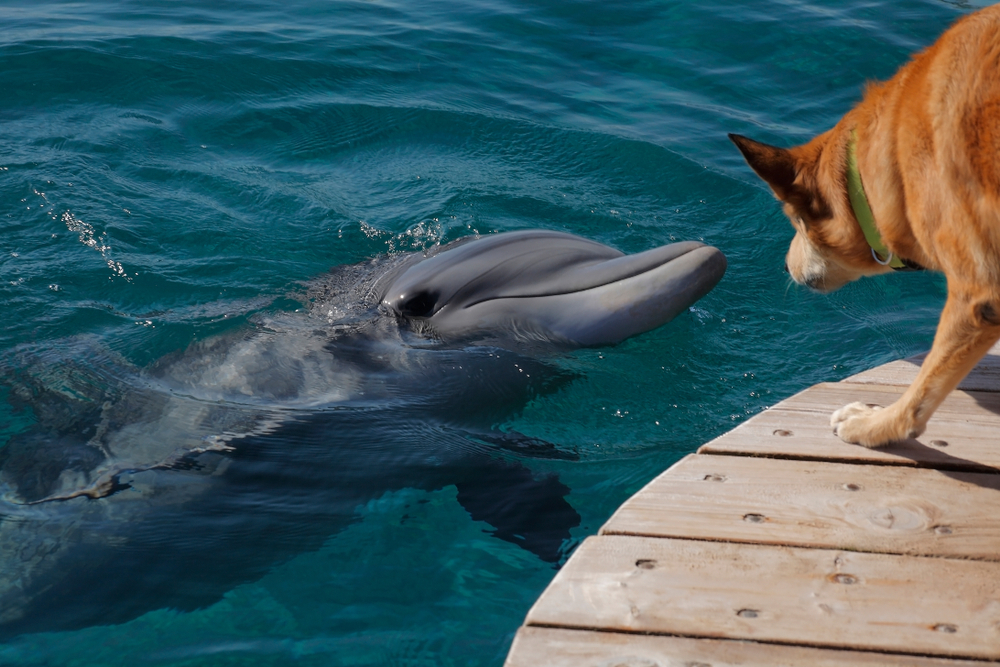
Dolphins are often celebrated for their intelligence and playful nature. These marine mammals are known for their complex communication skills, which include a variety of clicks, whistles, and body movements. They have been observed using tools, such as sponges, to protect their snouts while foraging on the seafloor. Dolphins also display strong social bonds and have been known to support injured or sick individuals within their pod. Their ability to understand and mimic human behaviors further highlights their cognitive prowess.
What sets dolphins apart is their ability to recognize themselves in mirrors, which is a sign of self-awareness. This characteristic is rare among animals and suggests a high level of cognitive function. Their brains are large and highly complex, which supports their sophisticated problem-solving abilities. Dolphins also exhibit cultural behaviors, passing on techniques and skills from one generation to the next. These traits make dolphins a standout member of the animal kingdom when it comes to intelligence.
3. Elephants
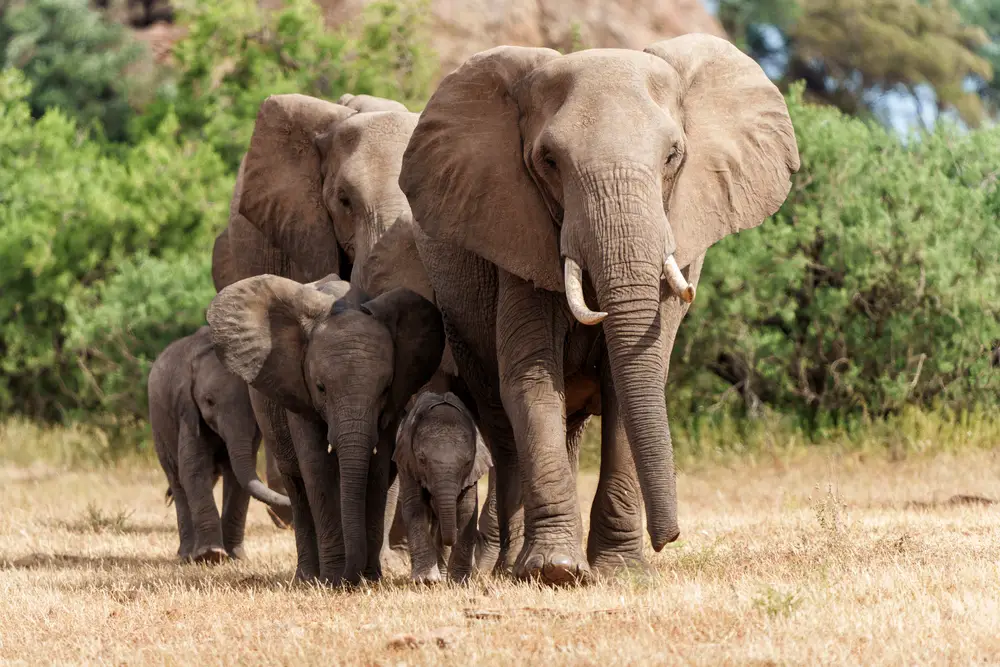
Elephants boast an impressive range of cognitive abilities, including empathy, altruism, and complex problem-solving. They are known for their exceptional memory, which allows them to remember the locations of water sources and feeding grounds. A study by Caitlin O’Connell-Rodwell highlighted their ability to communicate over long distances using low-frequency sounds, showcasing their advanced communication skills. Elephants also display mourning behaviors and form strong social bonds within their herds. Their intelligence is not only evident in their actions but also in their interactions with other species, including humans.
These gentle giants also demonstrate self-awareness, as they can recognize themselves in mirrors. Their brains are large, with a highly developed neocortex, which is associated with higher-level thinking and emotional responses. Elephants use tools and have been observed modifying branches to swat flies or scratch themselves. Their problem-solving abilities extend to working together to achieve a common goal, such as rescuing a stuck calf. The intellectual capabilities of elephants make them a remarkable species to observe and learn from.
4. Crows
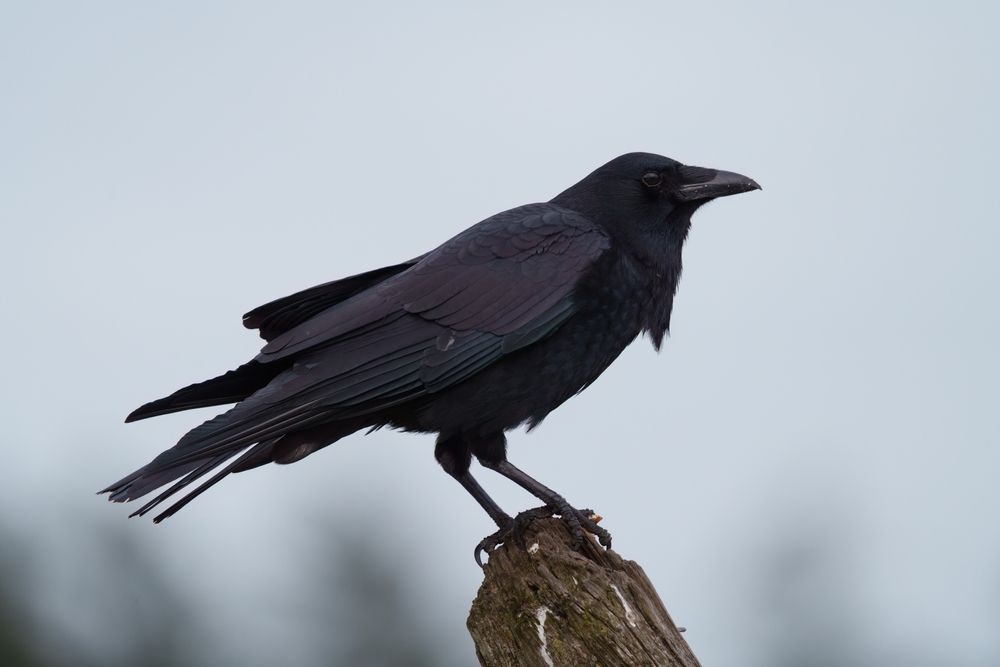
Crows are part of the corvid family, which also includes ravens, magpies, and jays. These birds are known for their problem-solving skills and ability to use tools, such as bending wires to retrieve food from narrow containers. They have impressive memories, allowing them to remember human faces and recognize potential threats. Crows are also capable of complex communication, using calls to warn others of danger or indicate the presence of food. Their intelligence is evident in their ability to adapt to various environments, including urban settings.
One fascinating aspect of crow intelligence is their ability to plan for the future. They have been observed storing food in different locations and remembering where they hid it, which indicates an understanding of time and planning. Crows also display social intelligence, forming alliances and working together to achieve common goals. Their cognitive abilities are comparable to those of some primates, making them one of the most intelligent bird species. Crows continue to surprise researchers with their adaptability and problem-solving skills.
5. Octopuses
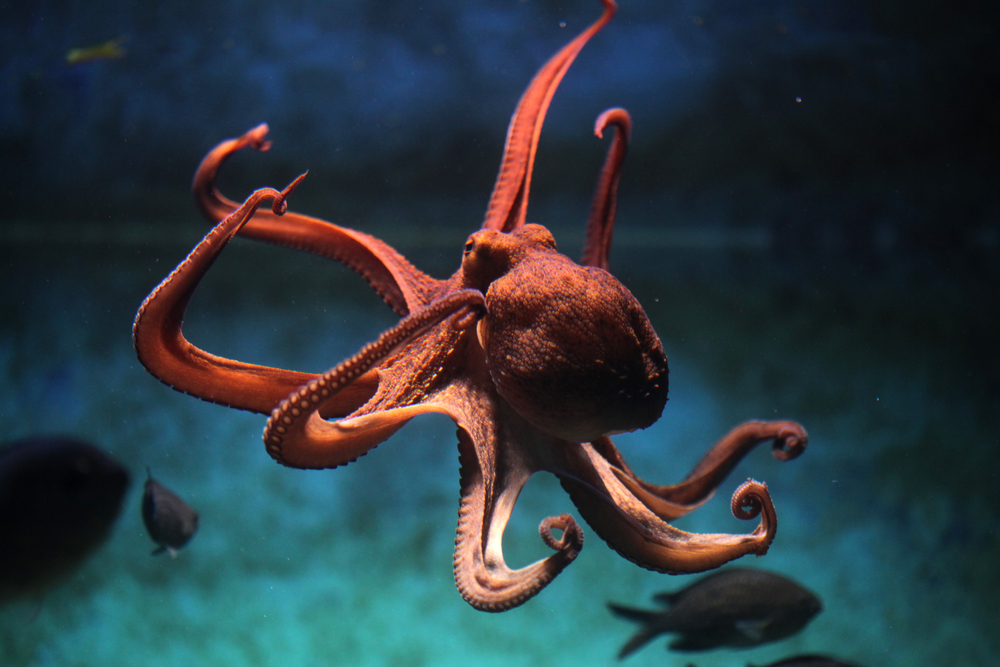
Octopuses are often regarded as the most intelligent invertebrates, thanks to their problem-solving abilities and complex behaviors. They have been observed using tools, such as coconut shells and rocks, to create shelters and protect themselves from predators. According to Dr. Alex Schnell, a marine biologist, octopuses can solve puzzles, navigate mazes, and even escape from enclosures, showcasing their cognitive prowess. These cephalopods also exhibit impressive camouflage skills, changing their appearance to blend in with their environment. Their intelligence is further demonstrated by their ability to learn through observation and experience.
What makes octopuses particularly fascinating is their distributed nervous system, which allows them to process information through their arms. Each arm can operate independently, enabling them to multitask effectively. This unique anatomy contributes to their problem-solving capabilities and adaptability. Octopuses also display curiosity and playfulness, traits often associated with higher intelligence. Their remarkable cognitive abilities have intrigued scientists and continue to challenge our understanding of invertebrate intelligence.
6. African Grey Parrots
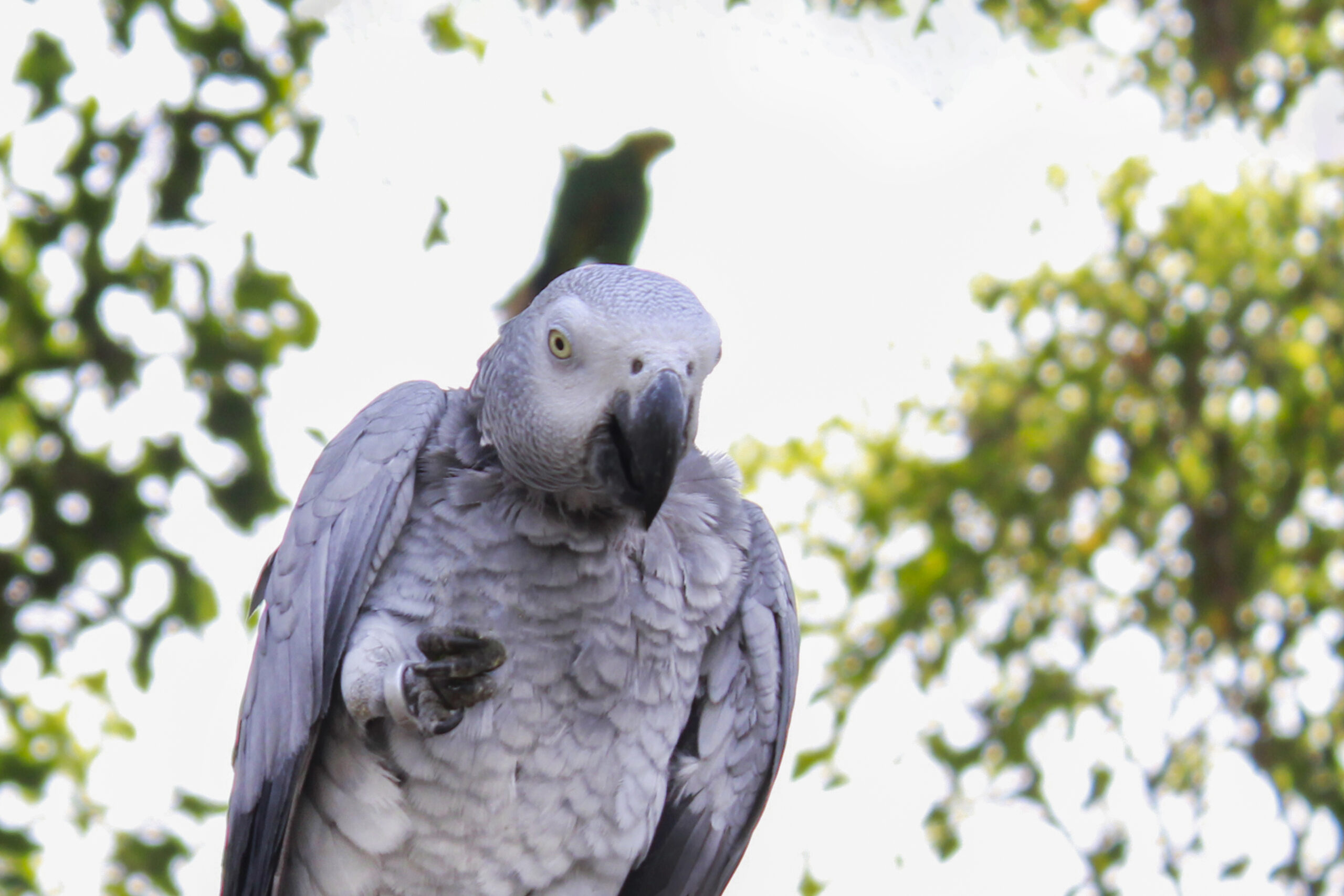
African Grey Parrots are renowned for their exceptional vocal abilities and intelligence. They are capable of mimicking human speech with impressive accuracy and can learn to associate words with objects and actions. These parrots demonstrate a high level of comprehension, understanding concepts such as numbers, colors, and even emotions. Their ability to communicate and interact with humans has made them popular pets and subjects of scientific research. African Grey Parrots have been shown to solve complex puzzles, often outperforming other bird species.
These parrots also exhibit social intelligence, forming strong bonds with their human caregivers and other birds. They can learn from observing others, which allows them to pick up new skills and behaviors quickly. African Grey Parrots have a long lifespan, which provides them ample time to develop their cognitive abilities. Their intelligence is not only limited to problem-solving but also extends to their understanding of social dynamics. These traits make African Grey Parrots one of the most intelligent bird species.
7. Pigs
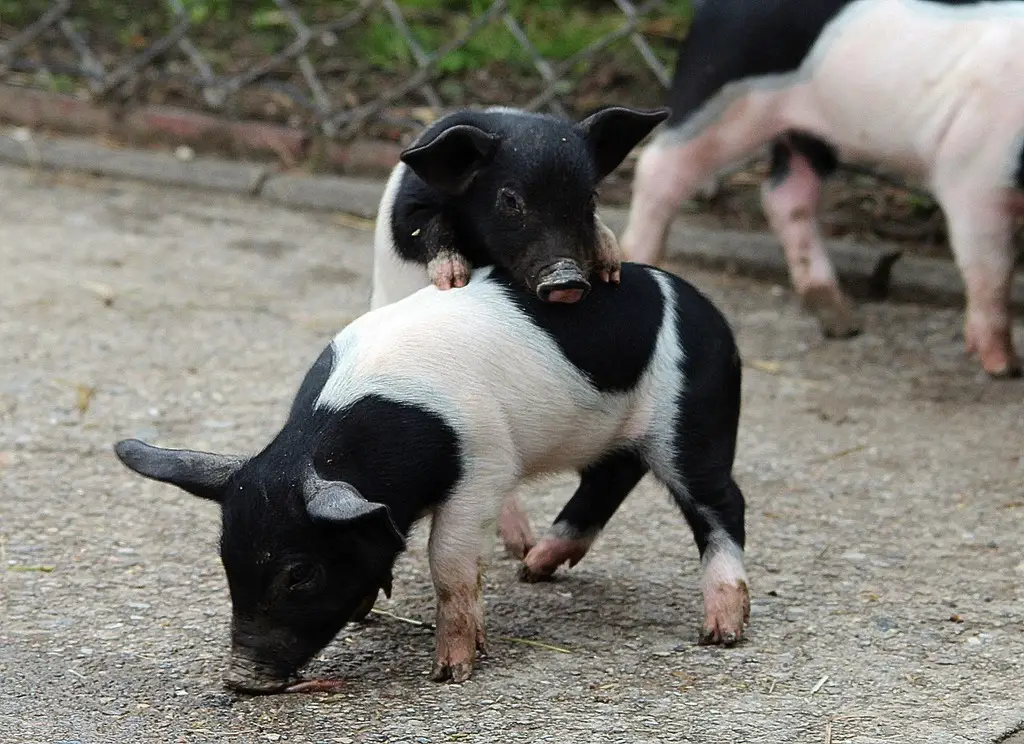
Pigs may not be the first animal that comes to mind when you think of intelligence, but their cognitive abilities are impressive. Research led by Dr. Lori Marino has shown that pigs possess problem-solving skills, memory, and emotional intelligence comparable to that of dogs and some primates. They can learn tasks quickly and adapt to new environments with ease. Pigs are also known for their social intelligence, forming close bonds with other pigs and even humans. Their ability to communicate through a variety of vocalizations further highlights their cognitive capabilities.
Pigs have been observed using tools and solving mazes, demonstrating their problem-solving skills. Their memory is remarkable, allowing them to remember locations and navigate complex environments. Socially, pigs are capable of understanding and responding to emotions, both in themselves and others. They also exhibit playfulness and curiosity, traits often associated with higher intelligence. Pigs continue to surprise researchers with their adaptability and cognitive abilities, challenging our perceptions of farm animals.
8. Orangutans
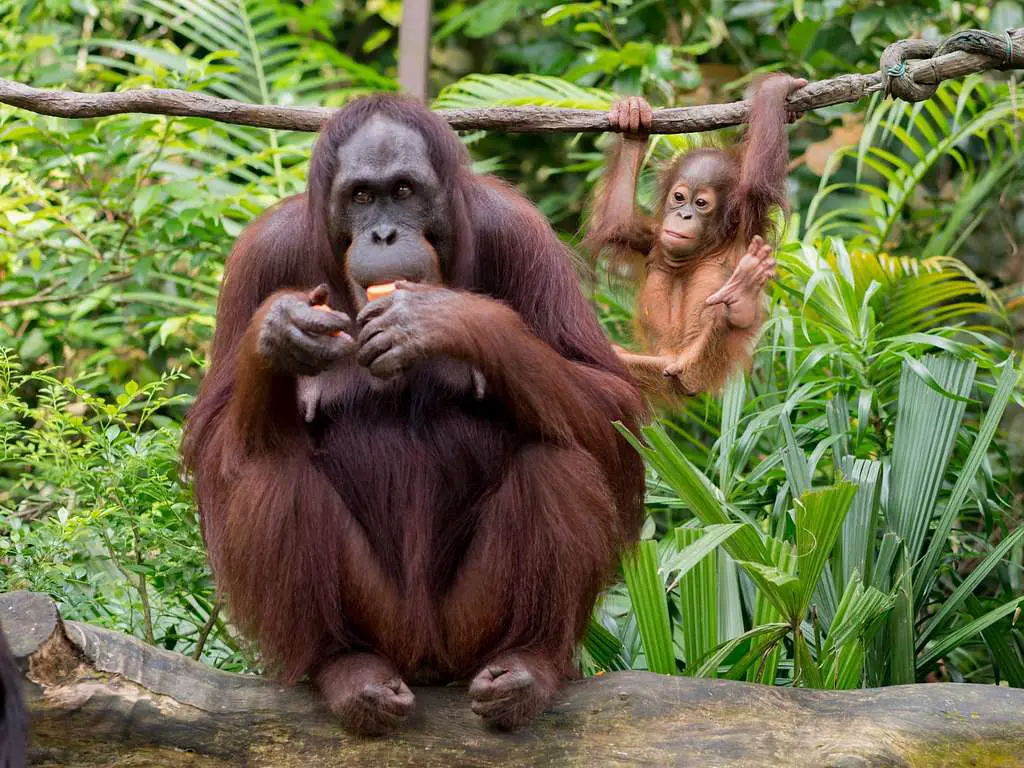
Orangutans are another primate species known for their intelligence and problem-solving abilities. They have been observed using tools in the wild, such as leaves to create makeshift umbrellas or using sticks to extract insects from tree bark. Orangutans are also known for their complex social behaviors and ability to learn through observation. They can recognize themselves in mirrors, which indicates a level of self-awareness. This intelligence extends to their ability to communicate with humans through gestures and expressions.
Their cognitive abilities are supported by their large brains, which are similar in size to those of chimpanzees. Orangutans have impressive memory skills, allowing them to remember the locations of food sources and navigate their environment effectively. They are also capable of understanding cause-and-effect relationships, which aids in their problem-solving efforts. Socially, orangutans form strong bonds with their offspring and demonstrate empathy towards others. These traits make orangutans one of the most intelligent primate species.
9. Rats
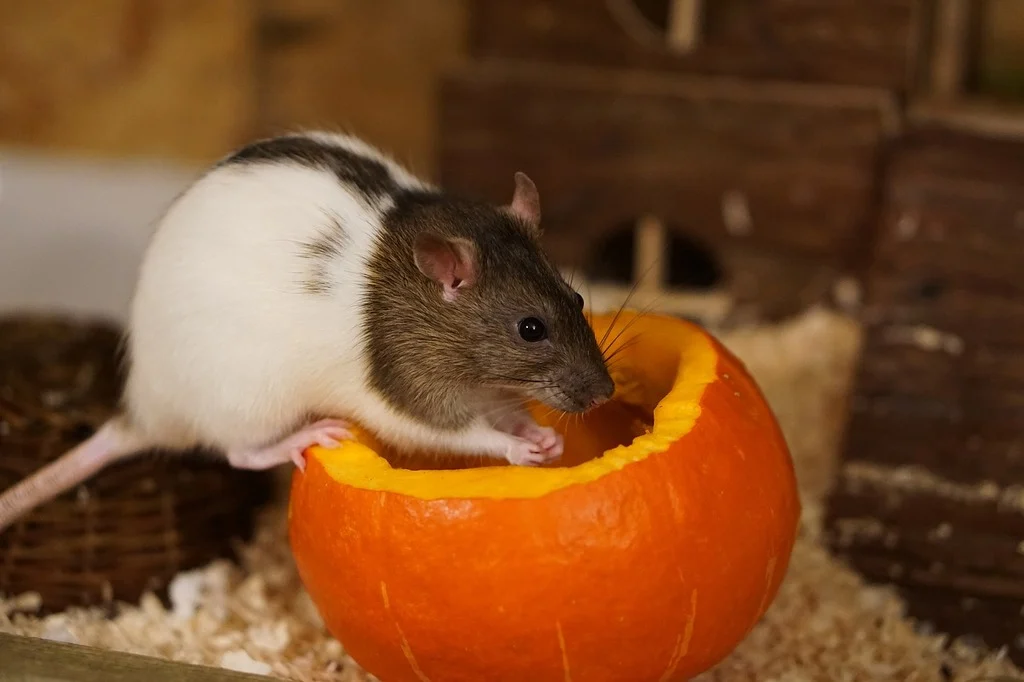
Rats may not be the most glamorous of animals, but they are incredibly intelligent and resourceful. Their problem-solving skills and ability to navigate complex mazes have made them popular subjects in scientific research. Rats can learn tasks quickly and have excellent memories, allowing them to recall information and adapt to changing environments. They are also highly social animals, forming close bonds with other rats and even humans. Their cognitive abilities make them adept at understanding and responding to emotions.
Rats have been observed using tools and displaying curiosity, both of which are indicators of higher intelligence. They are capable of learning through observation, which allows them to acquire new skills and behaviors. Socially, rats communicate through a variety of vocalizations and body language, demonstrating an understanding of social dynamics. Their adaptability and problem-solving skills have enabled them to thrive in a variety of environments, from urban areas to research laboratories. These traits make rats one of the most intelligent rodent species.
10. Border Collies
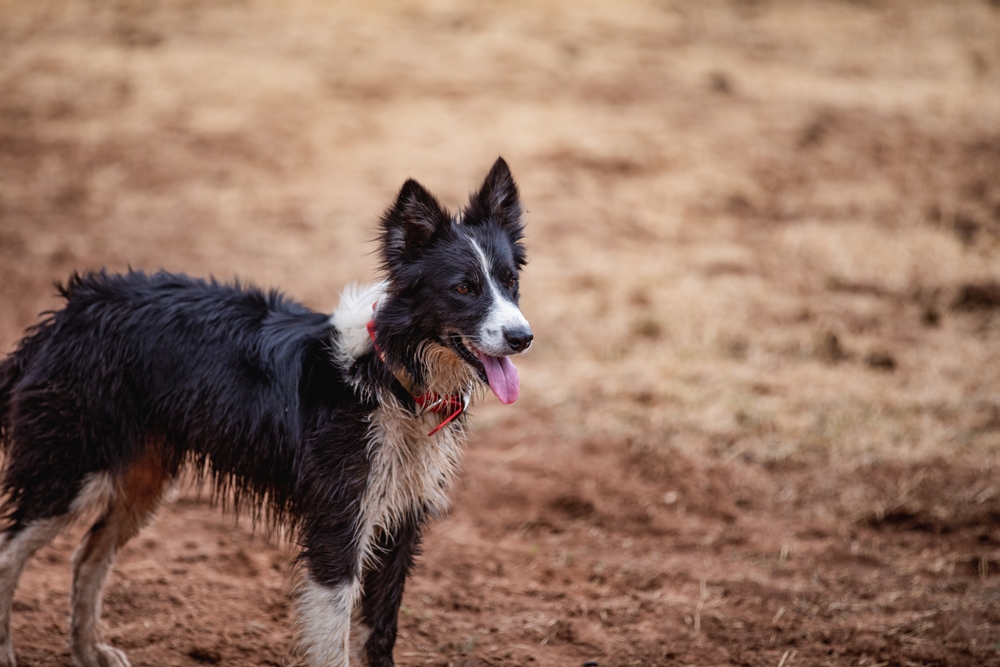
Border Collies are often considered the smartest dog breed, known for their exceptional problem-solving skills and intelligence. They are highly trainable and excel at understanding and following complex commands. Border Collies have been observed learning new tasks quickly and can remember a large number of words and commands. Their intelligence is supported by their ability to anticipate human behavior and react accordingly. These dogs are also known for their strong work ethic and ability to perform complex tasks, such as herding livestock.
Their cognitive abilities extend to their social intelligence, as Border Collies form strong bonds with their human caregivers and other animals. They are capable of understanding and responding to emotions, both in themselves and others. Border Collies have a natural curiosity and playfulness, which allows them to engage with their environment and learn through exploration. Their intelligence and adaptability make them popular working dogs and companions. These traits ensure that Border Collies remain one of the most intelligent dog breeds.
11. Bonobos
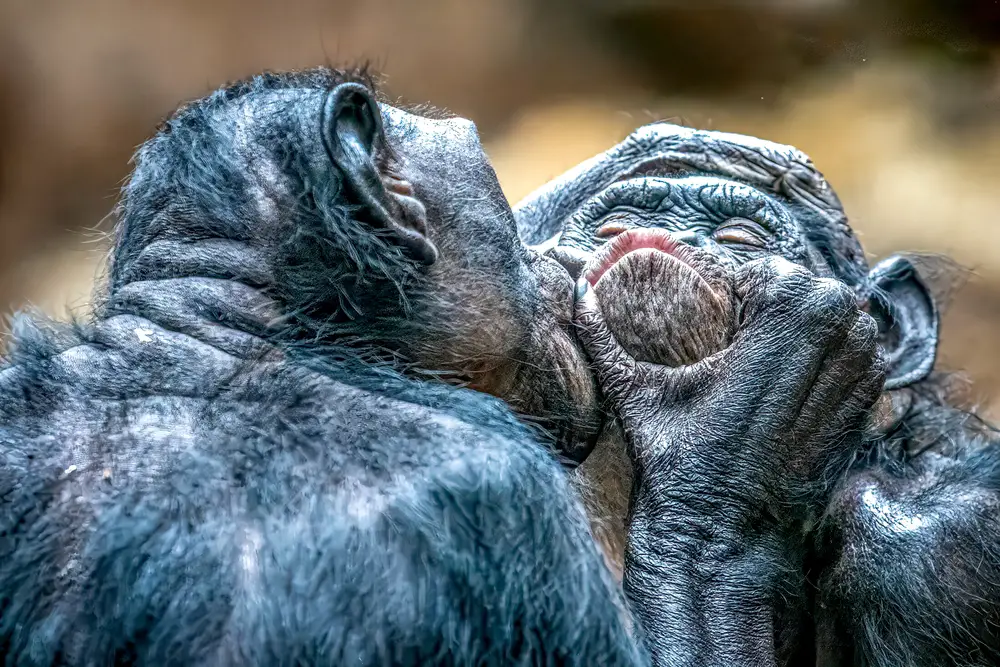
Bonobos are closely related to chimpanzees and share many of the same cognitive abilities. They are known for their advanced problem-solving skills and complex social behaviors. Bonobos have been observed using tools in the wild, such as sticks to extract insects from tree bark or using leaves as sponges to collect water. Their intelligence is further demonstrated by their ability to communicate with humans through gestures and expressions. Bonobos also display empathy and cooperation, often working together to achieve common goals.
Their cognitive abilities are supported by their large brains and highly developed social structures. Bonobos have impressive memory skills, allowing them to remember the locations of food sources and navigate their environment effectively. They are also capable of understanding cause-and-effect relationships, which aids in their problem-solving efforts. Socially, bonobos form strong bonds with their offspring and demonstrate empathy towards others. These traits make bonobos one of the most intelligent primate species.
12. Ravens
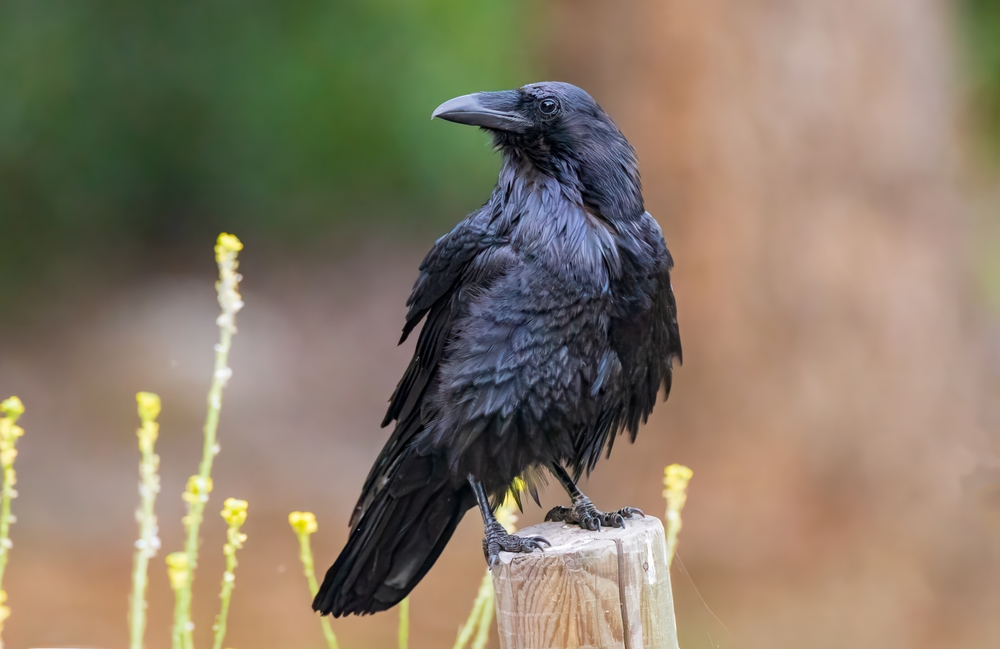
Ravens are part of the corvid family, which is known for its intelligence and problem-solving abilities. These birds have been observed using tools, such as sticks to extract insects from tree bark or using rocks to crack open nuts. Ravens possess impressive memories, allowing them to remember human faces and recognize potential threats. They are also capable of complex communication, using calls to warn others of danger or indicate the presence of food. Their intelligence is evident in their ability to adapt to various environments, including urban settings.
One fascinating aspect of raven intelligence is their ability to plan for the future. They have been observed storing food in different locations and remembering where they hid it, which indicates an understanding of time and planning. Ravens also display social intelligence, forming alliances and working together to achieve common goals. Their cognitive abilities are comparable to those of some primates, making them one of the most intelligent bird species. Ravens continue to surprise researchers with their adaptability and problem-solving skills.
13. Sea Lions
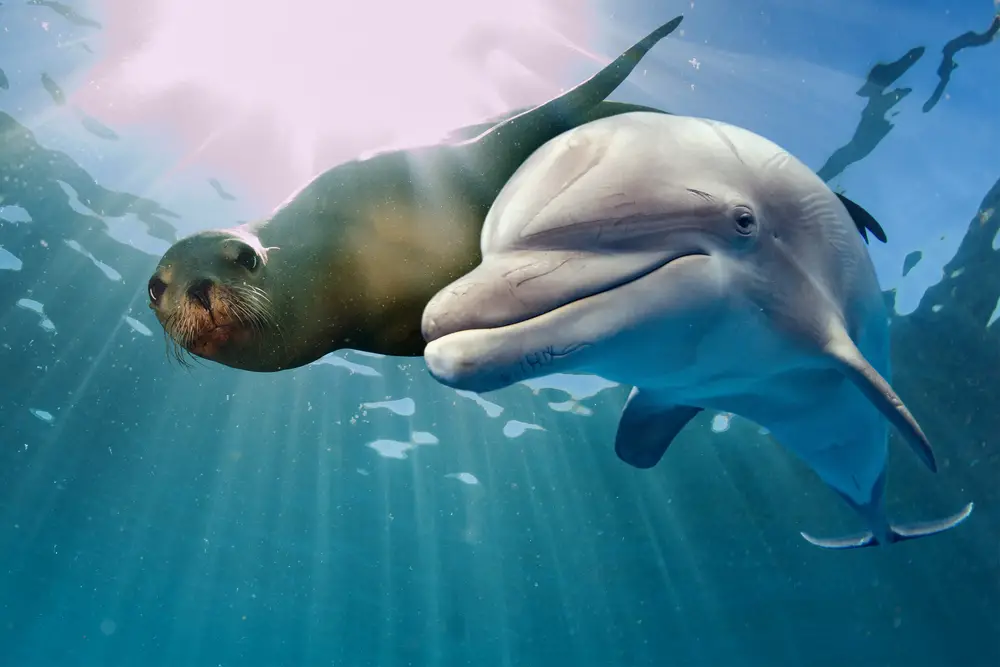
Sea Lions are known for their playful nature and intelligence, often exhibiting behaviors that showcase their cognitive abilities. They have been observed using tools, such as rocks to crack open shellfish, and can learn complex tasks through training. Sea Lions are also capable of understanding and following commands, making them popular performers in marine parks. Their intelligence extends to their ability to communicate with each other through vocalizations and body movements. Sea Lions also display strong social bonds and have been known to support injured or sick individuals within their group.
These marine mammals possess impressive memory skills, allowing them to remember the locations of food sources and navigate their environment effectively. Sea Lions are also capable of understanding cause-and-effect relationships, which aids in their problem-solving efforts. Their cognitive abilities are supported by their large brains, which are highly developed and allow for complex thinking and emotional responses. Sea Lions have a natural curiosity and playfulness, which allows them to engage with their environment and learn through exploration. Their intelligence and adaptability make them one of the most intelligent marine mammals.
14. Cats

Cats are often underestimated when it comes to intelligence, but their cognitive abilities are impressive. They are known for their problem-solving skills and ability to learn through observation. Cats can learn tasks quickly and have excellent memories, allowing them to recall information and adapt to changing environments. They are also highly social animals, forming close bonds with other cats and even humans. Their cognitive abilities make them adept at understanding and responding to emotions.
Cats have been observed using tools and displaying curiosity, both of which are indicators of higher intelligence. They are capable of learning through observation, which allows them to acquire new skills and behaviors. Socially, cats communicate through a variety of vocalizations and body language, demonstrating an understanding of social dynamics. Their adaptability and problem-solving skills have enabled them to thrive in a variety of environments, from urban areas to rural landscapes. These traits make cats one of the most intelligent domestic animals.
15. Bottlenose Whales
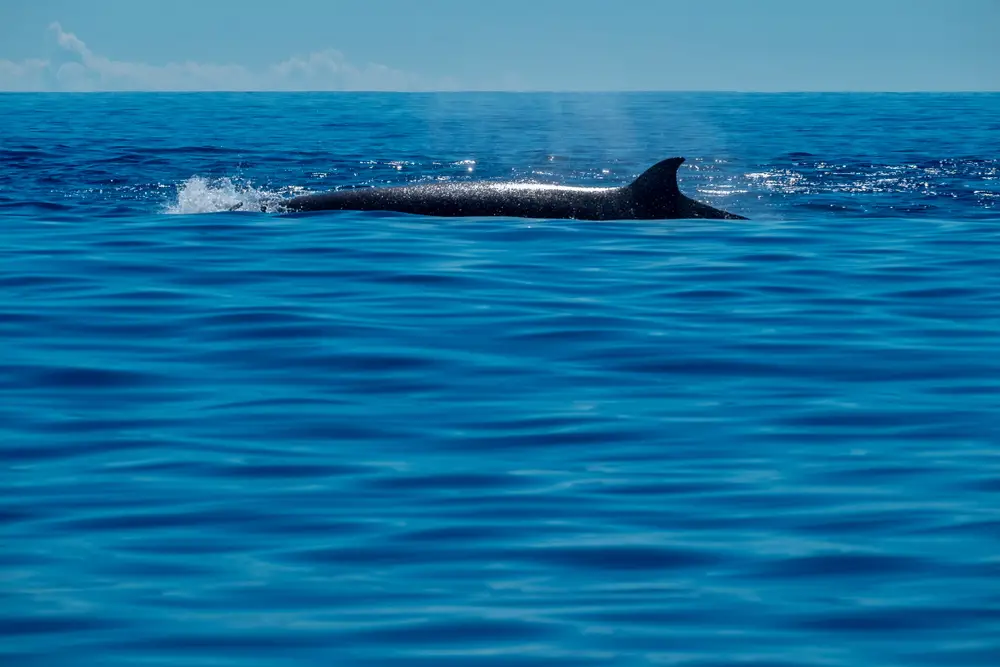
Bottlenose Whales, also known as bottlenose dolphins, are renowned for their intelligence and complex social behaviors. They have been observed using tools, such as sponges, to protect their snouts while foraging on the seafloor. Bottlenose Whales are also capable of understanding and following complex commands, making them popular subjects in marine research. Their intelligence extends to their ability to communicate with each other through a variety of vocalizations and body movements. Bottlenose Whales display strong social bonds and have been known to support injured or sick individuals within their pod.
These marine mammals possess impressive memory skills, allowing them to remember the locations of food sources and navigate their environment effectively. Bottlenose Whales are also capable of understanding cause-and-effect relationships, which aids in their problem-solving efforts. Their cognitive abilities are supported by their large brains, which are highly developed and allow for complex thinking and emotional responses. Bottlenose Whales have a natural curiosity and playfulness, which allows them to engage with their environment and learn through exploration. Their intelligence and adaptability make them one of the most intelligent marine mammals.
